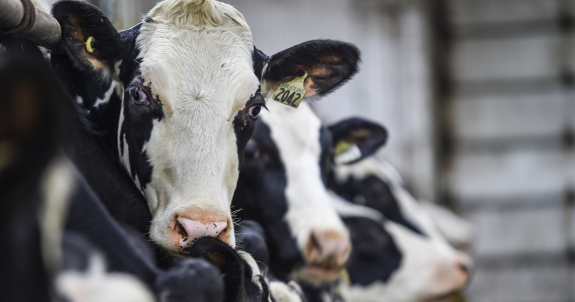On June 8, 2023, the Union of BC Indian Chiefs (UBCIC) Chiefs Council passed a resolution calling for stronger laws to protect animals on farms, and reduce the severe impact of farming on climate change and habitat loss. The resolution was moved by Chief Judy Wilson of the Osoyoos Indian Band, and highlights the longstanding recognition by Indigenous Peoples of the spiritual and ethical responsibility to treat animals with respect, reciprocity, and dignity.
Factory Farming Harms Animals and the Planet
The resolution highlights the alarming mistreatment of animals within factory farming practices, pointing out that “animals on factory farms are one of the most unregulated and unprotected groups of animals in BC and Canada”, and that their suffering often goes unaddressed by authorities due to poor regulation and lack of enforcement of the laws that do exist. The resolution “fully rejects the current legal and regulatory landscape” for factory farming, and confirms that the inadequate legal regime directly contravenes the “customs, laws, traditions, and values” of First Nations in BC who maintain “deep spiritual connections” to all living kin, including animals.
Animals endure miserable lives in factory farms. As the UBCIC resolution points out, farmed animals are often overcrowded, confined to cages or other small spaces, and deprived of natural light and fresh air—all to produce maximum meat, eggs, and milk at minimal cost and maximum profit. In addition, standard practices like forced impregnation, tail docking, debeaking, and castration without anesthesia all cause extreme pain and distress.
The consequences of factory farming are dire for both animals and the environment. Factory farming contributes to deforestation, destroying valuable ecosystems and biodiversity, and generates enormous amounts of greenhouse gases and is a leading contributor to climate change.
Factory farming also directly impacts Indigenous Peoples. As the resolution explains, animal farming leads to habitat disturbance, biodiversity loss, predation, and other human activities—displacing Indigenous Peoples and their animal kin from their land.
A Call for Regulation & Accountability
The UBCIC resolution emphasizes the need for stronger laws and regulations pertaining to the treatment of animals on farms. It calls on the BC and federal governments to work with First Nations to co-develop laws that “reduce the impacts of climate change and habitat loss due to factory farming, and reduce the risk of disease and suffering of animals on factory farms, and that provide funding to communities in order to support the transition to better animal welfare practices more aligned with a cruelty-free stance toward animals.”
Unlike many other developed nations, Canada lacks provincial and federal laws that regulate the treatment of animals on farms, and governments don’t proactively monitor conditions on farms to ensure animals aren’t being mistreated.
Instead, the government lets a farm industry-dominated group called the National Farm Animal Care Council (NFACC) develop voluntary, unenforceable “standards” for animals on farms. These standards generally fall far below what the public considers acceptable, and allow for severe animal suffering. As the UBCIC points out, NFACC lacks crucial oversight, transparency, and accountability, and it’s not aligned with strong animal care practices. Furthermore, the NFACC system doesn’t comply with the United Nations Declaration on the Rights of Indigenous Peoples
The UBCIC Chief’s Council resolution marks a pivotal moment in the fight for animal protection and environmental preservation. It highlights the deep-rooted spiritual connection between Indigenous Peoples and animals, demanding respect and reciprocity. The resolution’s call for stronger laws and increased accountability should serve as a wake-up call for policymakers and society to prioritize sustainable and compassionate practices in our food system that comport with Indigenous values.
A copy of the UBCIC resolution can be found here.
Banner: Jo-Anne McArthur | We Animals Media




